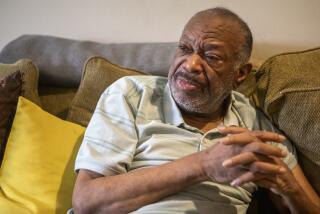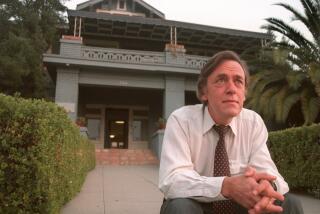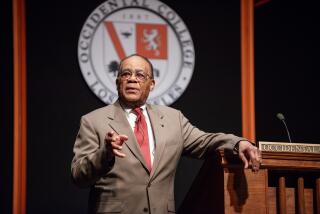John Payton dies at 65; prominent civil rights attorney
John Payton, a leading civil rights lawyer who defended the University of Michigan’s affirmative action policy before the Supreme Court and led the NAACP Legal Defense and Educational Fund, has died. He was 65.
Payton died Thursday at Johns Hopkins University Hospital in Baltimore after a brief illness, the New York-based NAACP fund announce.
In a prepared statement, President Obama called him a “dear friend” and “true champion of equality” who helped “protect civil rights in the classroom and at the ballot box.”
A Los Angeles native, Payton was born in 1946 to an insurance adjuster and his wife.
While attending Pomona College, he successfully lobbied its administration to recruit more black students and organized a black studies program, according to the Journal of Blacks in Higher Education. He had served on the school’s board of trustees since 2005.
After receiving a bachelor’s degree in mathematics in 1973, Payton earned a law degree four years later from Harvard University and soon joined the Washington firm of Wilmer Cutler Pickering Hale & Dorr. He had been attracted by the lawyers’ pro bono work for the NAACP in Mississippi.
He eventually rose to partner but took a leave in the early 1990s to become corporate counsel for the District of Columbia. When President Clinton nominated him in 1993 to be assistant attorney general for voting rights, Payton withdrew his name after it was revealed that he had not voted for 16 years.
In 1994 he went to South Africa with his wife, Gay McDougall, who helped run the country’s first democratic elections. He served as an election monitor.
He returned to the Washington firm and in 2008 was named director-counsel and president of the NAACP Legal Defense and Educational Fund.
The affirmative action cases Payton argued before the Supreme Court included 2003’s Gratz vs. Bollinger, which involved admissions policies at the University of Michigan. The court ruled against the university but in a companion case decided that the law school’s race-conscious admissions policy did not amount to a quota system.
Barbara Arnwine of the Lawyers’ Committee for Civil Rights said Payton had showcased his long-range strategic thinking while studying the Michigan cases. “He really sat back and said, ‘What is it that the court needs to understand about racial diversity in America?’ ” Arnwine said. “What are the consequences of a non-diverse society?”
While at the Legal Defense and Educational Fund in 2010, Payton argued Lewis vs. City of Chicago, in which the Supreme Court unanimously concluded that a group of African American would-be firefighters had filed a timely charge of race discrimination.
In 2010, the National Law Journal named Payton to its list of the decade’s most influential lawyers.
Survivors include McDougall, his wife of more than 20 years, who is also a noted civil rights attorney.
More to Read
Start your day right
Sign up for Essential California for the L.A. Times biggest news, features and recommendations in your inbox six days a week.
You may occasionally receive promotional content from the Los Angeles Times.






